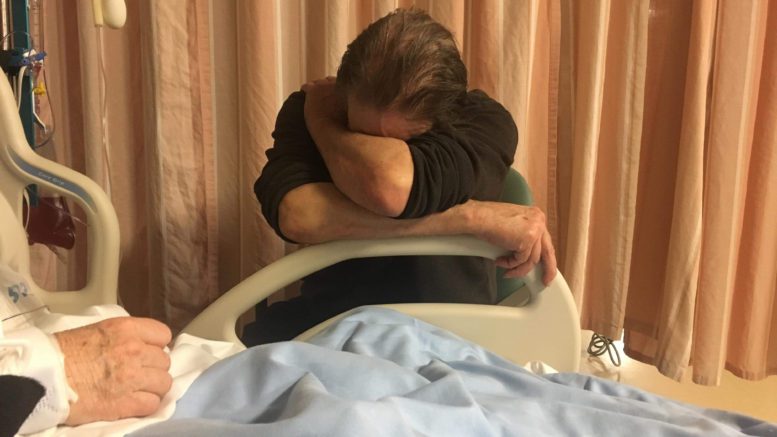For many Canadians living with disabilities, receiving frequent medical care is a necessary but gruelling part of life. Disabled people often have specific needs that they say Canada’s doctors and nurses have difficulty meeting.
Lauri Sue Robertson, a longtime advocate and member of East York’s disability community, shared the story of a friend who was denied birth control, a mammogram and a pap smear for years because, at four feet tall, she said her doctor perceived her to have a child’s body and deemed it unnecessary.
When the woman finally switched doctors and underwent a mammogram, she was diagnosed with breast cancer.
“Doctors are trained to think and act like they have all the answers,” Robertson said in a telephone interview. “They aren’t good at listening.”
A 2017 study conducted by Statistics Canada found more than one in five people over the age of 15 have a disability. That proportion rises significantly among those 65 and older, with 47 per cent of seniors over the age of 75 being classified as disabled.
Even getting to see a doctor can be a struggle for many. In 2018, the Canadian Medical Association reported that 32 per cent of disabled Canadians dealt with physical barriers when attempting to access health care.
Disability advocates want to see those numbers come down by pushing for change and working within the hospital system.
“We’ve got a great health care system in Canada, but it needs improving,” said Ray Smith, a member of the blind community from Ajax, Ont. “We need to work together to make sure everybody’s accommodated, everybody’s included.”
For her part, Robertson founded Disability Awareness Consultants in 2006. Her team is made up entirely of individuals with different disabilities. They work with service industries of all kinds, from offices to movie theatres, teaching employees how to give better service to disabled people and how to make their spaces more accessible.
While people are generally receptive, Robertson says that people in the medical field can be trickier to work with.
“Particularly in the medical field, people need to be willing to admit they don’t have all the answers,” said Robertson. “It’s okay to say you don’t have the answers. You can call someone who can help you come up with ways of giving treatment.”
And what can improve accessibility to some may increase difficulties for others. Robertson said that it’s important to get a well-rounded view from people of different disability experiences, as certain things like raised and textured curb edges are helpful for blind individuals but may cause trouble for people with mobility issues.

Denise Chamberlain, an East York native and member of the blind community, she felt prompted to volunteer at hospitals to teach staff about sighted guiding – how to properly and politely lead someone who is blind – after an experience in which a nurse brought her a walker instead of giving her directions.
Physically getting to an appointment can also be costly if one has physical disabilities, and people who are disabled have a higher risk of living in poverty. In 2017, 1.6 million Canadians with disabilities went without devices, aids or other medical necessities like prescriptions due to costs, according to Statistics Canada.
“The medical profession seems to assume things about people,” Chamberlain said in a video interview with the Toronto Observer. “I think they need to communicate better.”

